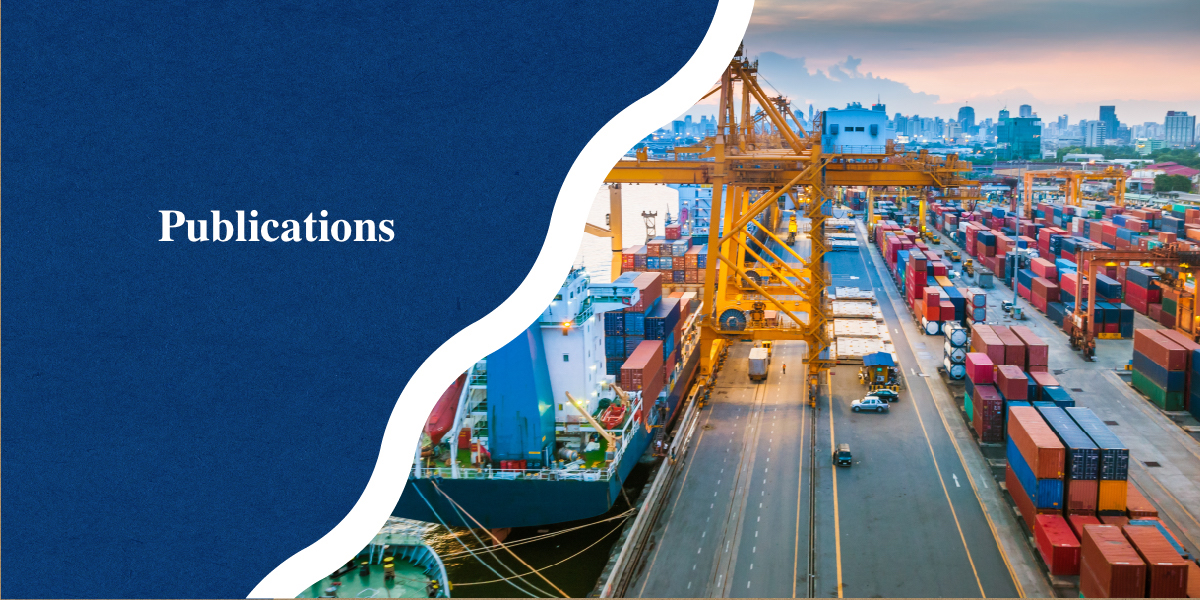
May Darwich & Jutta Bakonyi, 2025, ‘Port Infrastructures and the Making of Historical Time in the Horn of Africa: Narratives of Urban Modernity in Djibouti and Somaliland‘, Cities.
Abstract
As infrastructures mushroom across Africa, this article investigates narratives accompanying infrastructural investments in East African cities, Djibouti-city (Djibouti) and Berbera (Somaliland). While cities in the Global North move towards a post-industrial future, the Horn of Africa depicts other endpoints, breaking with experiences of colonisation while hoping to diminish asymmetries in a Western-dominated global system. Inspired by models that condense idealized experiences of urban success elsewhere, Djibouti and Somaliland rework historical narratives while envisioning their future as urban nodes interlinking different places and cultures. We build on Koselleck’s theory of historical time and link it to notions of elsewhere to show how different actors rework past experiences and future expectations through port modernizations. On the one hand, port operators and logistics companies use city labels and propagate developmental trajectories that assimilate East African cities to Dubai or Shekou models. On the other, political elites and city residents search in these projects for their own path, creatively combining elements of similarity and distinctiveness while developing the city’s specific brand. Through qualitative interviews substantiated with secondary sources, this article shows how infrastructure becomes a driver of identity promoting spatial imaginaries, re-invigorating (shared) memories, and formulating aspirations drawing on different times and places.
Jutta Bakonyi & May Darwich, Infrastructures and International Relations: A Critical Reflection on Materials and Mobilities, International Studies Review, Volume 26, Issue 4, December 2024, viae046, https://doi.org/10.1093/isr/viae046
Abstract
In a world of accelerated movements, this article examines how infrastructures matter in international relations. We first show that the International Relations (IR) discipline has relegated infrastructures to the background of their studies and treated them as passive tools despite their forcible role in the establishment of the modern state system. By adopting a sociological definition of “the international,” this article emphasizes the centrality of materials and mobilities in thinking about the international and calls for a novel infrastructural lens in the IR discipline. We argue that infrastructures provide crucial mechanisms for forging the distinctions between units that constitute the international as a separate realm. We outline how infrastructures continuously transform this realm through re-scaling and re-ordering spaces, polities, and people. In the meantime, infrastructures are at the heart of social processes, which generate knowledge practices that constitute the international. They inscribe themselves in discourses, produce meaning, and shape identities, and they are thus part of the ideational underpinning of the international. We conclude by advocating a shift in the analytical weight of materials in IR, premised on an interdisciplinary dialogue, and suggest a theoretical and methodological recalibration of the discipline’s treatment of infrastructures.
Jutta Bakonyi & May Darwich, 2024, Port infrastructure and state-building in the Horn of Africa. in R Mansour (ed.), Borders of Conflict: Navigating Policy in a Transnational Ecosystem. Global Policy. <https://www.globalpolicyjournal.com/projects/gp-e-books/borders-conflict-navigating-policy-transnational-ecosystem>
Chiré, Amina Saïd & Aden Omar Abdillahi. 2022. “Stratégie portuaire ou port stratégique. Le port de Djibouti, plus qu’un simple enjeu économique?“. In La Mer Rouge: Convoitises et Rivalités sur un Espace Stratégique, eds. Marc Levargne & David Rigoulet-Roze. Paris: L’Harmattan.
Résumé
Lorsqu’on parle de Djibouti, c’est d’abord la position géographique stratégique du territoire qui vient à l’esprit. Cependant, pour les Djiboutiens, cet atout passe au second plan face à l’importance de l’interface portuaire qui renferme une bonne partie de l’histoire du pays et de son identité. Au-delà de son intérêt économique, le port constitue une matrice essentielle de la préservation de la souveraineté nationale malgré les incertitudes conjoncturelles. Ainsi, son développement a permis au pays de mieux s’ouvrir sur le monde, de transformer certaines dépendances en interdépendances et de gagner en autonomie sur le plan diplomatique entre autres.
Abstract
When we talk about Djibouti, it is first the strategic geographical position of the territory that comes to mind. However, for Djiboutians, this asset takes a back seat to the importance of the port interface, which contains much of the country’s history and identity. Beyond its economic interest, the port is an essential matrix for the preservation of national sovereignty despite the economic uncertainties. Thus, its development has allowed the country to better open up to the world, to transform certain dependencies into interdependencies and to gain autonomy on the diplomatic level among others.
Darwich, May. 2020. ‘Saudi-Iranian Rivalry from the Gulf to the Horn of Africa: Changing Geographies and Infrastructures’. POMEPS Studies 38. Sectarianism and International Relations, eds. Marc Lynch and Simon Mabon.